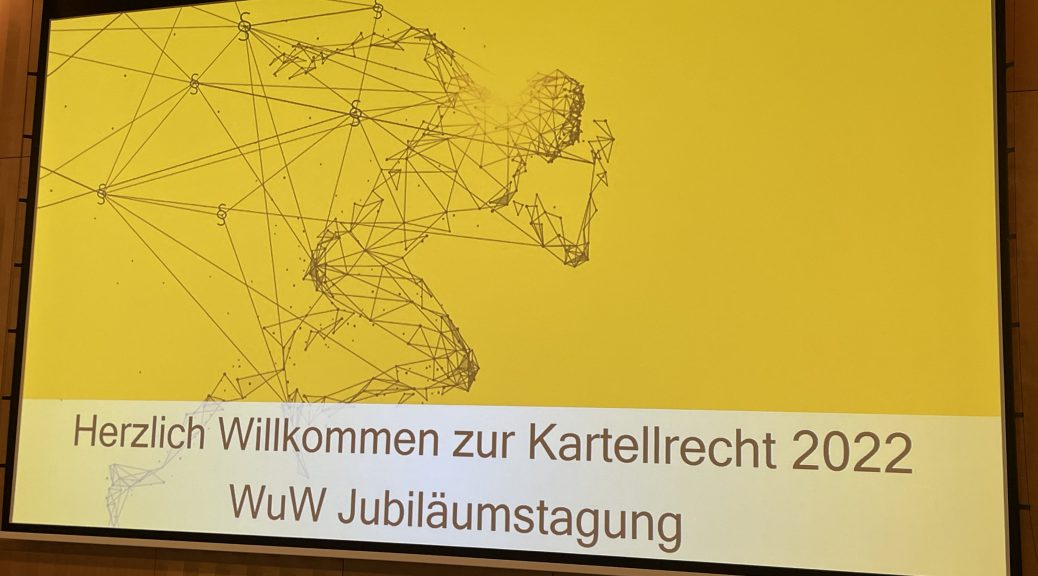
Conference Debriefing (26): WuW70
In 1951, seven years before the German competition act entered into force, WuW was founded, the oldest German competition law journal. The editors (of which our reporter is one) staged a conference in Berlin to mark the 70thanniversary – with awards, expected honoraries and unusual suspects. If you want to have an idea how these Germans think about antitrust, Rupprecht Podszun has a Conference Debriefing for you!
Name of Event: “70 Years Wirtschaft und Wettbewerb – Join the Future of Competition” – it was a kind of birthday party for WuW whose name roughly translates into Competition and the Economy.
Topic: One day of running through the most pressing issues of antitrust. Felt a bit like looking into a journal issue (without the tedious and footnote-loaden erudite academic articles).
Place & Time: 5 October 2021, in person, in a Berlin hotel
Host: WuW, formerly published by Handelsblatt Fachmedien was sold to Fachmedien Otto Schmidt, as Christoph Bertling, the publisher, explained. He left hosting to professor Daniel Zimmer of Bonn University, one of the editors.
Audience: Very many faces that I would love to call familiar – yet I had only seen them online, if at all, in the past two years, so it was a bit like a reunion. I spent my first coffee with Christina Oelke (VAUNET) and Sascha Dethof (Fieldfisher), the lunch break with Kurt Markert, a legendary former competition official, I had economists Rainer Lademann and Frank Maier-Rigaud sitting right behind me, and when I turned my head, antitrust lawyers like Katharina Kolb, Florian Haus, Frank Montag or Markus Wirtz came into view. Just to give you the flavour.
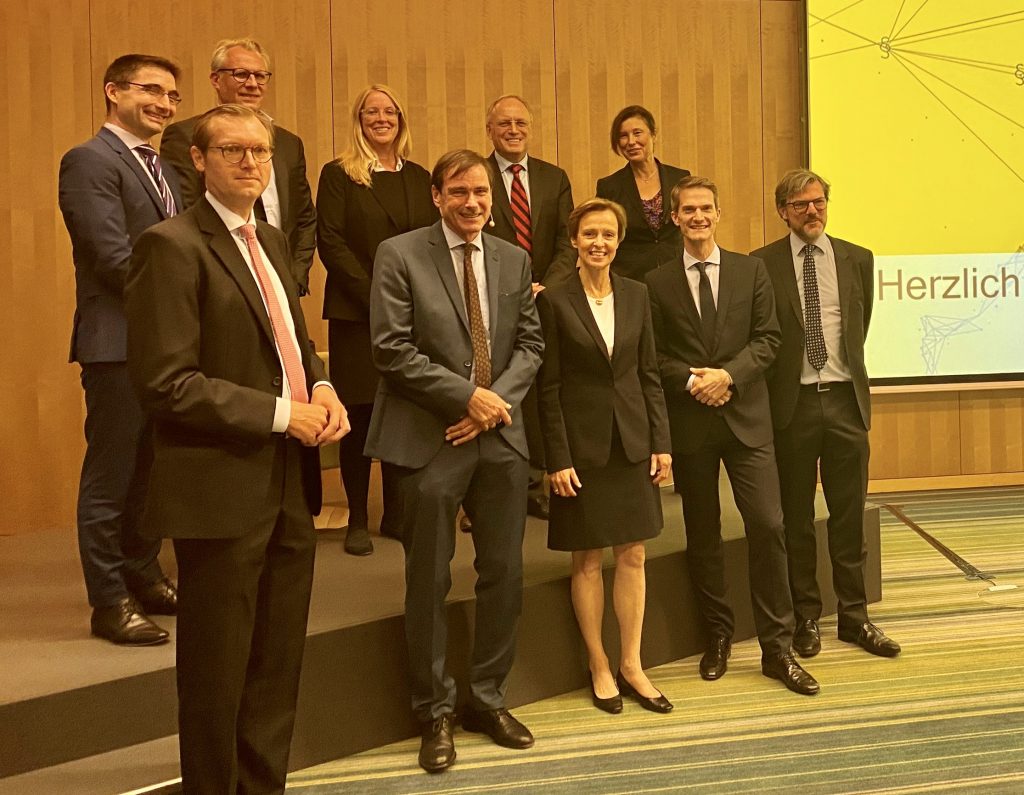
If this is the big German competition law event, may I guess that Andreas Mundt gave the first talk?
Bingo! And he looked very professional. You were not able to spot that only the night before news broke that his best friend Isabelle de Silva will step down as head of the French competition authority on 13 October 2021.
Pardonnez-moi, s’il vous plait? Had not heard that!
Pas grave. The news transpired when all Facebook networks were down. It may have slipped your timeline. It comes as a surprise that the mandate of de Silva was not extended, and rumour has it that this has to do with her stance on a media merger in France that President Macron wishes to see confirmed, not banned.
I thought such direct political interventions into competition law application were yesterday-ish.
It is rumour only! Since you mention politics: Daniel Zimmer, the lovely conférencier who knows to combine his huge wisdom with a mild air of irony, reminded the audience that the competition law journal started as early as 1951: At the time, Eberhard Günther, then the Thorsten Käseberg of the day, had presented the first draft of the German competition act, the GWB. It took seven years to push through this act that only came into force in 1958. In that “Seven-Years’-War”, German industry was reluctant to accept antitrust laws in the “land of cartels”, and the pros and cons was discussed in that WuW journal.
Surely, German industry loves the GWB now?
Well, yes, sort of. It was a nice fit with that history, however, that so much need for political reform transpired throughout the day. The Bundeskartellamt’s president Andreas Mundt started the day, giving another one of his very well-mannered, but highly political speeches.
Oh, a kind of wish list for the new government?
His top priority is the Digital Markets Act, and this must still be settled with the incumbents. Economics Minister Peter Altmaier of the outgoing Merkel government holds talks with Margrethe Vestager today. Thorsten Käseberg, from the Ministry of Economics, said it was “crunch time” now at Brussels for negotiators. Allegedly, Andreas Schwab, the rapporteur for the DMA, has 1000 requests for changes on his desk from the EU Parliament only! For Mundt and Käseberg a “red line” is that the DMA leaves room for the application of section 19a of the GWB. Also, national authorities need to be involved in enforcement in a better way – you may remember the second paper presented by Germany, France and the Netherlands on this issue.
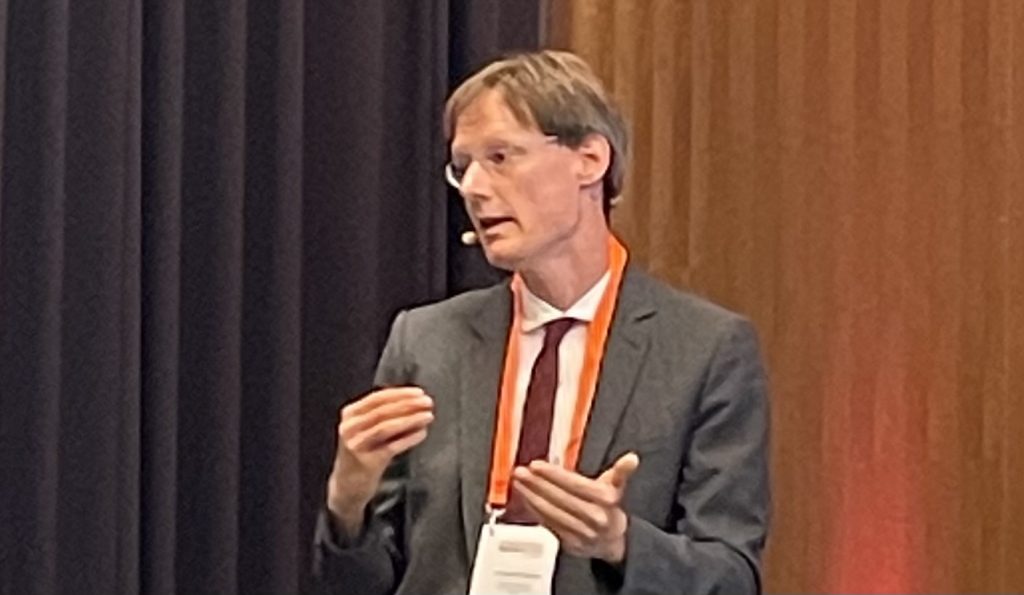
We knew that much.
What I found interesting was the new focus on merger control. Mundt stated boldly: “Killer acquisitions are for real, and we can prove them in many cases.” Käseberg said: “Google/Doubleclick and Facebook/Whatsapp were wrongly decided. The Commission was probably under pressure from the Court and thus reacted too lax.” Mundt expects new rules from the new German coalition government (may still take a while) on merger control. Käseberg advocates new notification requirements in the DMA for gatekeepers. He had solicited an expert opinion by law professors Jens-Uwe Franck, Giorgio Monti and Alexandre de Streel who had confirmed that such an amendment would even be possible on the basis of the competences from Art. 114 TFEU.
I thought merger control was a matter of competition law and therefore needed Art. 103 TFEU as a legal basis.
According to three professors you are wrong: “We submit that [it would only be an illegal circumvention of conditions and procedures of the Treaty] (if at all) when the changes to the merger framework, in casu the introduction of a new notification obligation, would contradict normative decisions enshrined in the EU Merger Regulation. This is not the case when the application of the – otherwise unchanged – merger control is extended beyond Article 1 EUMR. (…) In sum, we may conclude that a new notification obligation could be introduced via the DMA (on the basis of Article 114 TFEU).”
Oh, thank you. But doesn’t the new reading of Art. 22 of the Merger Control Regulation solve that issue for good?
Haha, please imagine that hard laughing emoji here! Daimler’s inhouse lawyer Rainer Crampen devoted his entire talk to pointing at the many flaws of this solution that the EU Commission came up with to catch more mergers. Thorsten Käseberg added he would rather prefer to have the full debate on merger control than have this kind of merger control through the backdoor. And Wolfgang Heckenberger of Siemens called it “the high arts of voodoo mathematics”: An incompetent authority can make an even more incompetent authority competent. The Court of Justice will be able to check this kind of mathematics in the Illumina/Grail case which is pending.
“Voodoo mathematics” – love that!
Oh, the inhouse lawyers were on fire, really! Fancy some more?
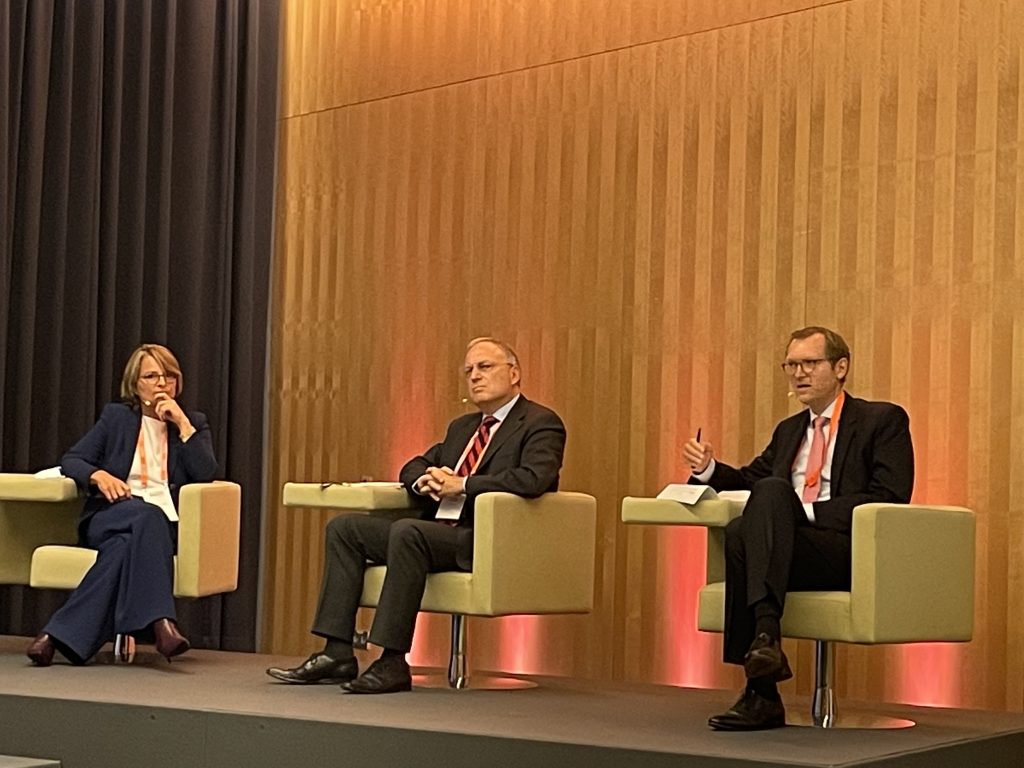
Go!
Thilo Reimers of Deutsche Bahn, speaking in a panel moderated by professor Petra Pohlmann, said they were all craving for more legal certainty in cooperations. Now, Thilo is a very polite person, others were more outspoken. Mars’ counsel Christiane Dahlbender for instance was in utter disbelief that according to the new VBER draft manufacturers were no longer allowed to present their products properly to customers when they ran an online shop, too. Heckenberger had his blood pressure racing with all the new requirements: He called it “insane” (“wahnwitzig” in German) that companies of 50+ staff need to provide a secure channel for whistleblowers now. New rules for Foreign Direct Investment (FDI) are like a conflagration (“Flächenbrand”). “We are no longer able to communicate all these requirements in our companies!” Probably, Europe is about to suffocate from regulatory frenzy, so he warned.
I feel him!
The great thing about Heckenberger is that he has this warm Southern German accent in his voice that gives all this the special flavour of sagacity, and he shares this with Mathias Traub, antitrust head of Bosch. Traub was asked to explain how to cope with all the new international requirements as an inhouse lawyer. He echoed the words of his colleagues, but added his very own blood pressure issue: requests for information (RFI) by competition agencies in cases where the company in question is not even part of the case. He said the EU Commission recently reached a new all-time-low by sending Bosch two different RFI for one merger case with 180 pages each on the same day with a seven days deadline (mercifully extended to 10). If Christian Baudis had been in the room already, he would probably have given us antitrust folks his quizzical look.
I’ve heard the name, but who is that again?
Will tell you later. Let me add from the Traub-talk that he said no-poaching-agreements were a thing on his watchlist, coming to a jurisdiction near you soon, he says. Also, questioned by Daniel Zimmer, he said the Chinese antitrust authorities were acting professionally and he had not experienced political intervention there. Linklaters’ Daniela Seeliger talked about compliance trainings, including the “compliance defence” that she had fought hard for in the last amendment of the German competition act (and successfully!). I was not able to concentrate on what she said, however, since she picked on me in a mock dawn raid situation, and I was traumatised from that moment on. She wanted to take my computer with her!
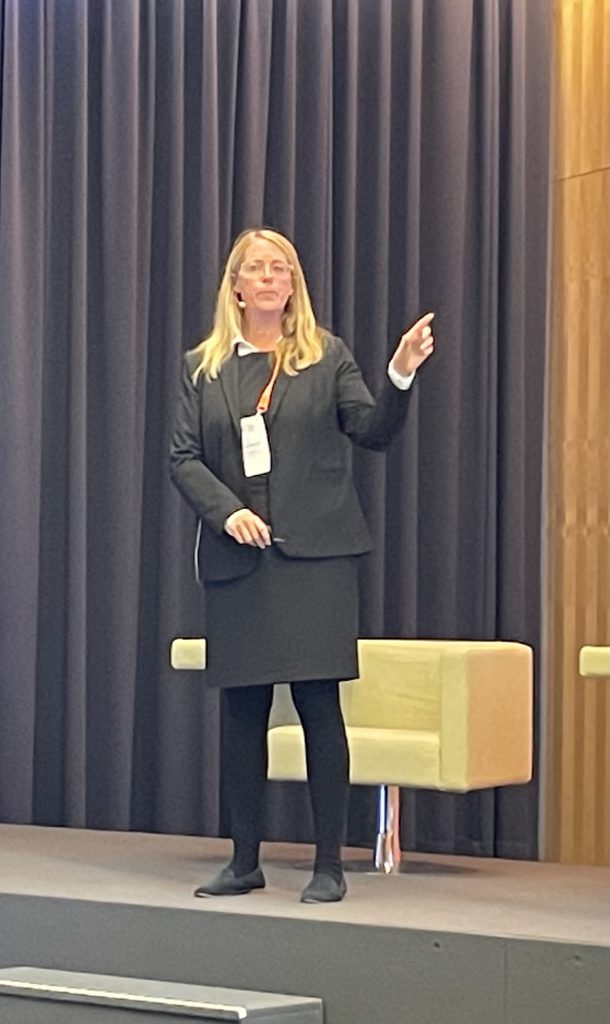
Daniela Seeliger 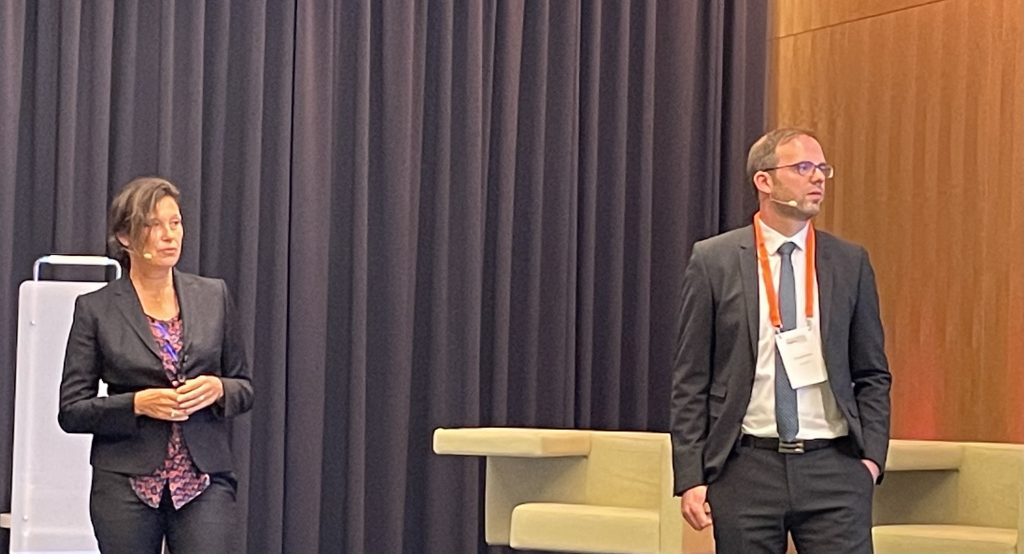
Ellen Braun and Christian Ehlenz 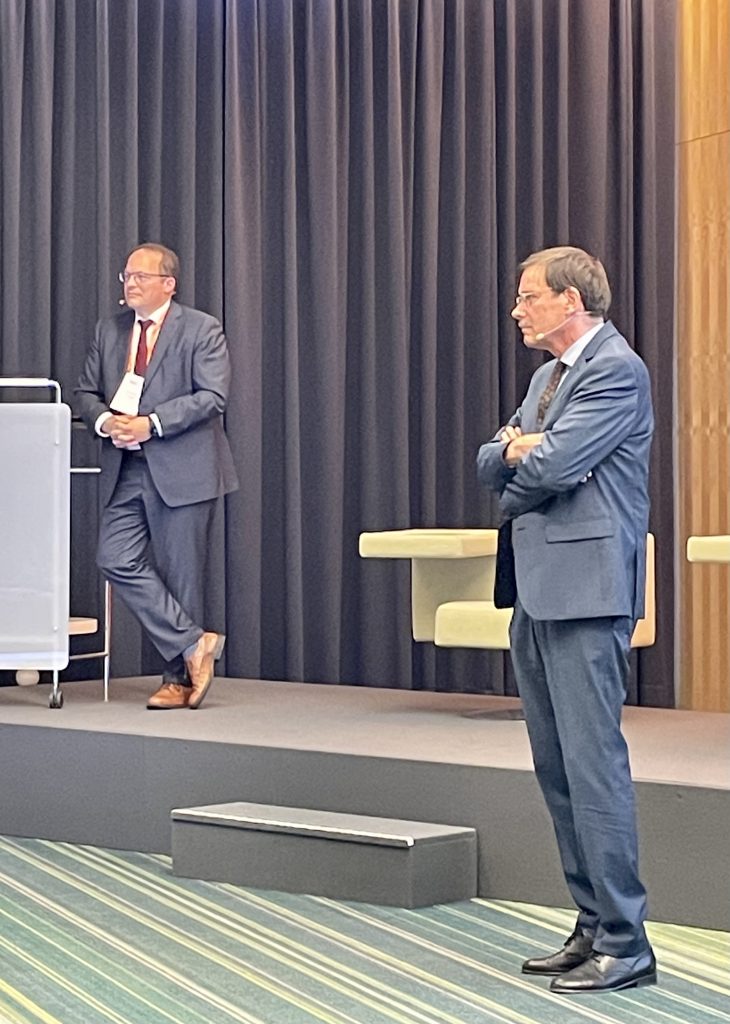
Mathias Traub and Daniel Zimmer 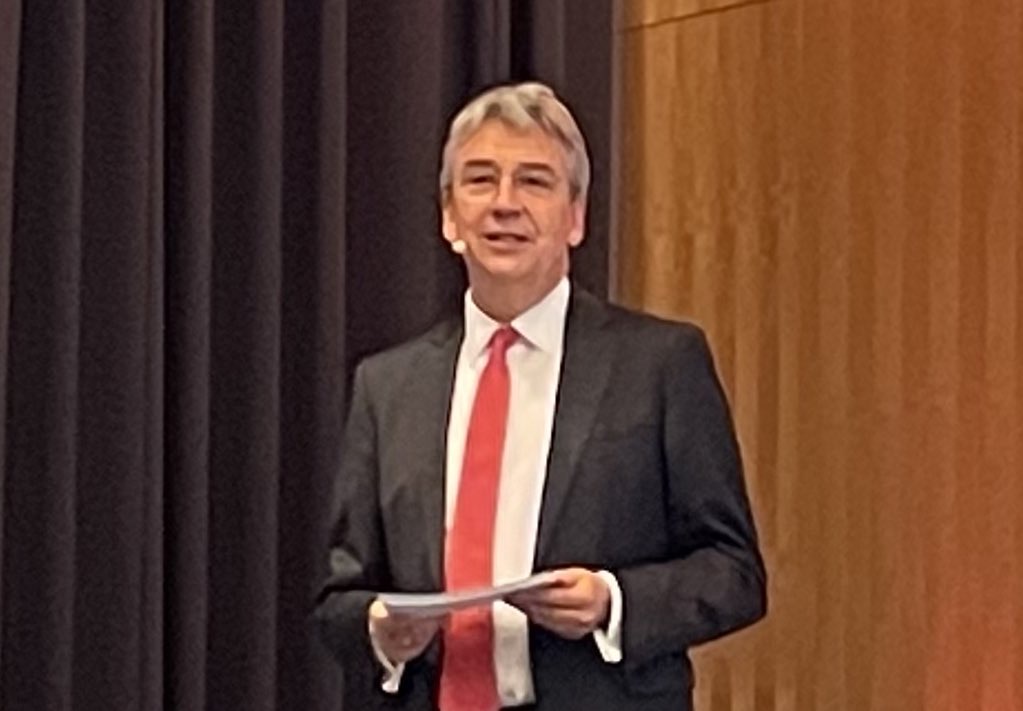
Andreas Mundt
Who would be interested in your boring files?!
That’s what I would have told her had I not been dumbstruck by her sudden display of competition official authority. (I wonder whether the people I searched when I was still in the Bundeskartellamt felt the same when I was entering their offices…) Anyway. Seeliger, I got that much, reminded undertakings of the Whistleblower directive and the “Wettbewerbsregister”, a register run at the Bundeskartellamt now, where your malicious activities, including cartels, are registered, banning you from tenders.
I need a drink! Any good news at the conference? What about these awards?
Oh, yes, let’s turn to the nice stuff! First: The WuW editors for the first time handed out the WuW Best Author Award for two outstanding contributions – they chose papers by economist Wolfgang Kerber on access to data (WuW 2020, 249) and by Amber Darr on human rights and competition law (WuW 2021, 388 – available in Juris and Owlit, if not in print). Both contributions are, obviously, highly recommended to read. It earned Wolfgang and Amber a one year free subscription of the journal and a stylish “thing”, as Daniel Zimmer put it. I think, in law firms this is called “tombstone”.
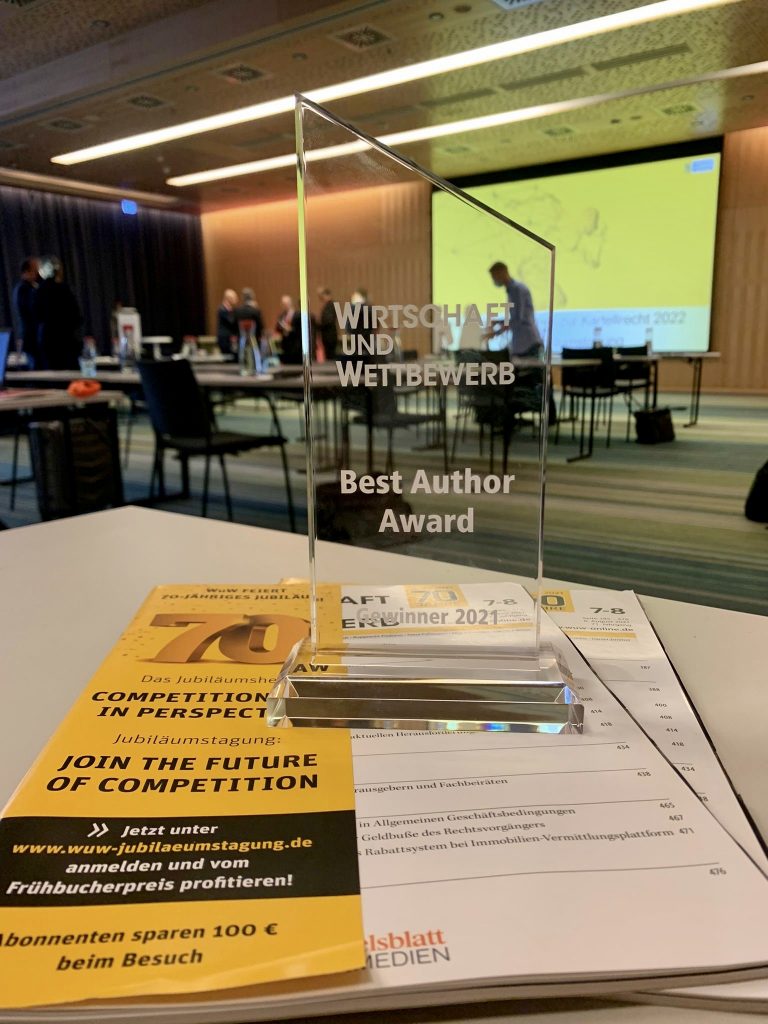
Congratulations, that’s great! The Awards culture finally reaching Germany…
And there was another one, a first-timer: The Antitrust Science Slam! I had the pleasure to moderate this with three young competition fellows who pitched their ideas and research to the audience. They had all the power, originality and rigour you would wish to see. That was energising after a long conference day! Hans-Markus Wagener (raised in our Düsseldorf Institute, yay) presented ideas on effectively sanctioning innovation cartels. (Probably that was raising blood pressure with some people in the room, too!), he won the popular vote by this. But the other two contributions were equally inspiring: Laura Robles, an economist with ABC Economics, asked judges to get their methodology right when trying to estimate damages. And Felix Mansius, a PhD student from the University of Cologne, suggested to solve the sustainability riddle in competition law by introducing a new format that reminded me a bit of a sandbox – with the option to make a law what companies had tried before. We should definitely have these 8-minutes-of-wild-ideas more often!
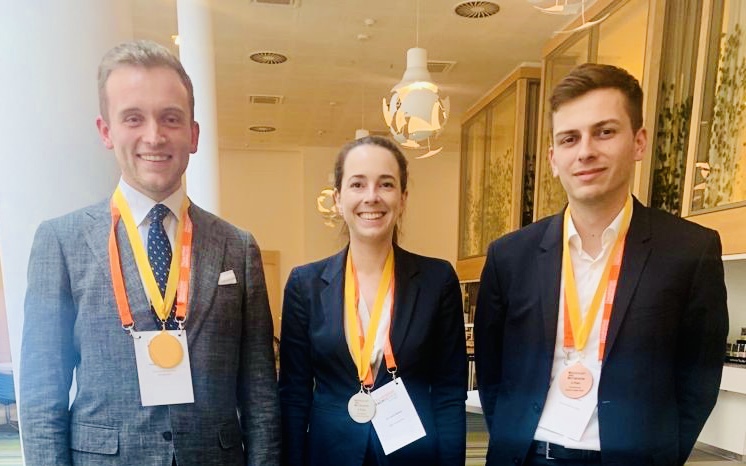
Agreed! Now that you mentioned sustainability…
I will come to that in a minute. Let me just add that there was more to the programme that I have not yet covered: Thilo Reimers gave a talk on blockchain that I had to miss since it was in a breakout session, same goes for NERA’s Philipp Heller who discussed damages. Ellen Braun of Allen & Overy and Christian Ehlenz of Merck did a great stocktaking of the Do’s and Don’ts for data cooperations. The topic fits well into the general line of business mantra: “We need more legal certainty, some reform and less detailed rules, pleeeeease!”
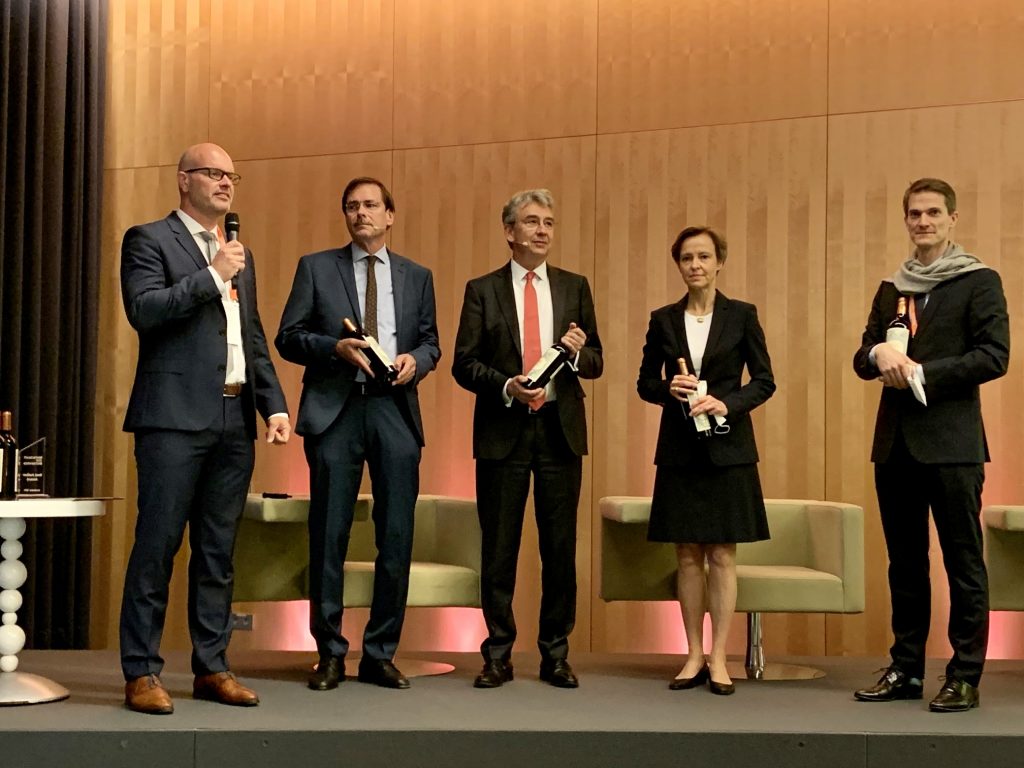
I have difficulties to keep you focused today. Is it because of this bottle of wine that you were given by the publisher?
Ehm, you wanted to hear about sustainability, right? Okay, Marsian Christiane Dahlbender and her Unilever colleague Dirk Middelschulte did an entertaining double act on this topic. They were passing the balls like pros. Their examples were gripping: How do you manage to secure a fair living wage for everyone involved in your supply chain? What do you do on palm oil? How can you stop child labour in the vanilla trade? How do you emit less CO2 in air traffic? Probably, global companies could achieve a great deal here.
Why don’t they just do it?
“Together we have more leverage, more brain power, more speed to reach these aims!”, they claimed. They are passionate about the topic, but, true, maybe not everything needs competition law exemptions. Andreas Mundt was pretty outspoken in this regard: “If legislators wish to protect animals, they should protect them, but not abuse competition law for just everything. What we often see are self-help-groups of the industry since the state fails to regulate.” Strong statement, too, and a message to politics to act on sustainability instead of leaving business alone. Middelschulte said that industry cooperation is still necessary since legislation often ends up in some compromise that does not really help. Strange world.
Any other topic that is on the wish list for the German government?
The Bundeskartellamt would love to see cartel whistle-blowers completely exempted from damages claims. President Mundt fears that otherwise leniency applications continue to go down. Not sure whether there is evidence for causality in this regard, some lawyers said that leniency applications are lower since there are less cartels. Wow. From a doctrinal viewpoint (and I am a professor for civil law after all) this is a tough cookie: a complete exemption of a wrongdoer from compensation in order to raise the risk of detection seems to be an awkward trade-off.
I would not bet for doctrine overpowering the wish to save leniency applications and high fines… but anyway. You mentioned Christian Baudis.
Oh, right! He is a former head of Google Germany – a title that necessarily propels you into the business of keynote speaking on digitisation. If you love watching TED talks all day long, his talk was probably just another one telling you how disruptive everything is. But for me, it was much more interesting than I had anticipated (but then I am not watching TED talks all day). Firstly, Baudis is rather down-to-earth, he is not the usual suspect wearing trainers and a funny t-shirt. Secondly, we were in an academic conference for lawyers, i.e. that species that is known for cherishing stability, certainty, procedures and laws from 1958 printed on paper. We need that reminder once in a while that there is a world out there where digital farming, smart factories or on-the-spot regulation of insurance cases via app are real and make some of our beloved traditions superfluous. Baudis’ message: Speed and data completely change competition. “We have only laid the foundations for digitisation so far, it is only starting!”, he said. His talk gave you these comforting shivers that things are going to change LARGE SCALE.
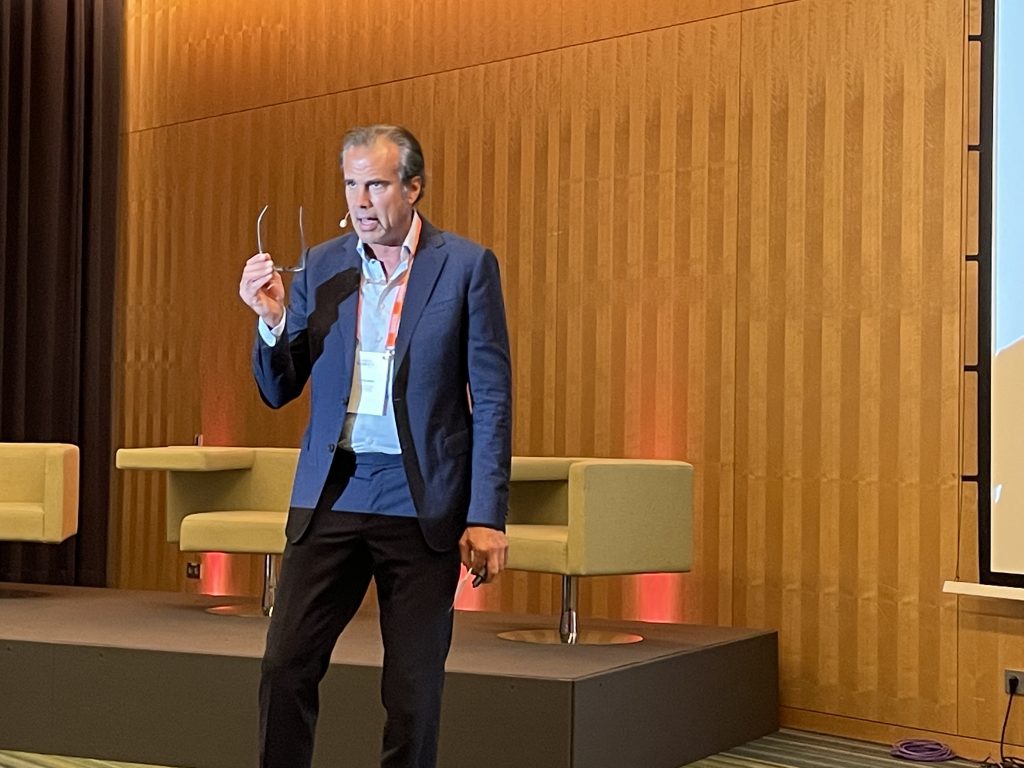
Does the world still need competition lawyers?
Thorsten Käseberg from the Ministry looked seventy years ahead into the year 2091. He assured us that – whatever the circumstances – there will still be a need for people who take responsibility for freedom and innovation.
Do say (1): „If you care about sustainability goals you may consider not to eat chocolate.” (Dirk Middelschulte fostering dental care)
Do say (2): „Breaking up the GAFAs will not cure all the problems, since new network effects will come to play.” (Andreas Mundt on toothless ideas)
Next stops:
On Thursday this week, the traditional German “Professorentagung”, an event organised by the Bundeskartellamt for the community of German antitrust professors, will take place online to discuss the Digital Markets Act. The German Monopolies Commission has just published an opinion on this.
And some ads: I have published a book on access to data, software and platforms, available open access here (German only). And I am looking forward to discussing the DMA at the Strathclyde Centre for Internet Law & Policy with Oles Andriychuk on 5 November 2021.
See you there!
Note: In an earlier version of this article I incorrectly wrote that Mars was running an online shop. This has been updated.
3 Gedanken zu „Conference Debriefing (26): WuW70“
Great conference report, dear Rupprecht Podszun! Thanks for this. – On the idea mentioned by President Mundt to indemnify immunity applicants against damage claims: I understand the initiative as an effort to preserve a healthy balance between public and private enforcement as the two pillars of antitrust enforcement in view of declining numbers for leniency applications. If I am not mistaken, the proposal would not eliminate liability of the immunity applicant, it would rather shift it to the remaining cartelists: They would have to indemnify the immunity applicant (i.e. the no1). The respective shares of contribution would change, not the overall liability of the cartel members who are jointly and severally liable to compensate for the damage. This means that someone would have to pay, but it would not be the first company to blow the whistle. Interesting move!
Amazing debriefing. Really enjoyable reading.
It was great fun and a privilege to attend the extraordinary WuW anniversary conference in Berlin – many thanks, Rupprecht Podszun, for the special debriefing. And it was a great idea to invite Christian Baudis as a guest speaker. Like a machine gun (in a positive sense) he gave us pretty much food for thought and made clear that time and speed is of the essence if antitrust laws should meet the challenges ahead in a digital world. But he also left many of us with the feeling that we might end up in a race between the tortoise and the hare. Maybe Voodoo math in the end is not that bad, after all.